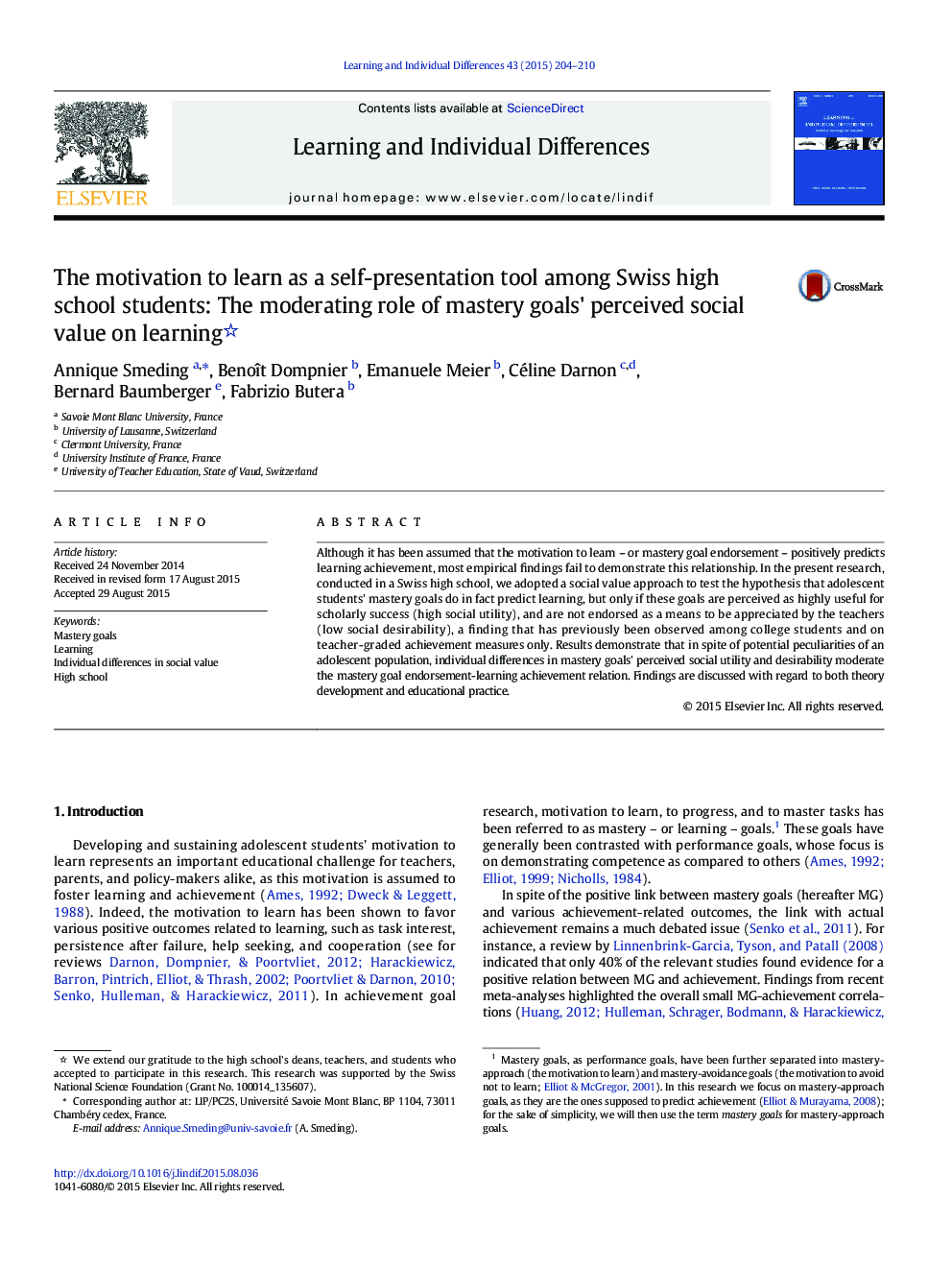| Article ID | Journal | Published Year | Pages | File Type |
|---|---|---|---|---|
| 364670 | Learning and Individual Differences | 2015 | 7 Pages |
•Mastery goal (MG) endorsement should predict learning achievement but often does not.•We adopt a social value approach to examine the MG-learning link among adolescents.•Results demonstrate that perceived social value of MG moderates the MG-learning link.•Supports the moderating role of individual differences in MG perceived social value•Discussion focuses on implications for theory development and practice.
Although it has been assumed that the motivation to learn – or mastery goal endorsement – positively predicts learning achievement, most empirical findings fail to demonstrate this relationship. In the present research, conducted in a Swiss high school, we adopted a social value approach to test the hypothesis that adolescent students' mastery goals do in fact predict learning, but only if these goals are perceived as highly useful for scholarly success (high social utility), and are not endorsed as a means to be appreciated by the teachers (low social desirability), a finding that has previously been observed among college students and on teacher-graded achievement measures only. Results demonstrate that in spite of potential peculiarities of an adolescent population, individual differences in mastery goals' perceived social utility and desirability moderate the mastery goal endorsement-learning achievement relation. Findings are discussed with regard to both theory development and educational practice.
